Berlin: German Director Margarethe Von Trotta Discusses 6 Key Films From Her Legendary Career
- Oops!Something went wrong.Please try again later.
- Oops!Something went wrong.Please try again later.

Let us now praise famous women” could serve as a pithy summation of the work of Margarethe Von Trotta.
With her representations of women of the past – feminists and philosophers, visionaries and revolutionaries, homegrown terrorists and everyday heroines – the veteran German filmmaker has carved out a unique place in cinematic history.
More from The Hollywood Reporter
'Femme' Review: George MacKay and Nathan Stewart-Jarrett Lift Under-Powered Queer Revenge Noir
BAFTA Awards: Ariana DeBose Opens Ceremony With Musical Performance
Ahead of the world premiere of Ingeborg Bachmann — Journey Into the Desert in Berlinale competition Feb. 19, von Trotta shared her insights into some of her most iconic onscreen feminists, the real-life women who inspired them and the actresses who brought them to life.
Read her comments below.
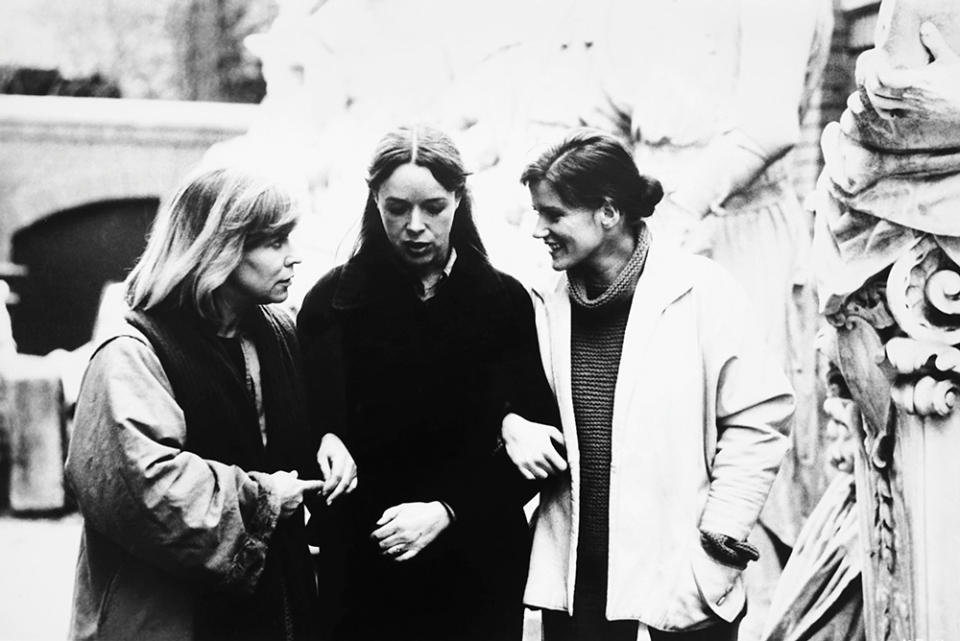
Marianne & Juliane
The 1981 drama, which won von Trotta the Golden Lion in Venice, follows two German sisters who both fight for women’s rights but take very different paths. Juliane (Jutta Lampe) becomes a journalist. Marianne (Barbara Sukowa), a terrorist. Inspired by real-life siblings Gudrun and Christiane Ensslin.
The beginning was not the women themselves, but a funeral. The funeral of political prisoners in Stuttgart Stammheim in the fall of 1977. There I met a young woman, Christiane Ensslin, whose sister [left-wing terrorist Gudrun Ensslin] had just been buried. She told me her story. The story of herself and her dead sister. It was only many months later that I realized that this story of hers could become a film. For me, that meant being able to tell German history through these two different sisters. Then came the idea that they exchanged their identities in the course of their lives. My first film title was The Exchange. The good young girl became a rebel who did not shy away from armed violence, and the youthful rebel became a woman who rejected violence as a political tool.
This was my first film with Barbara Sukowa— we’ve since done seven films together. She surprised me with the absolute fearlessness with which she approached the role [of terrorist Marianne].
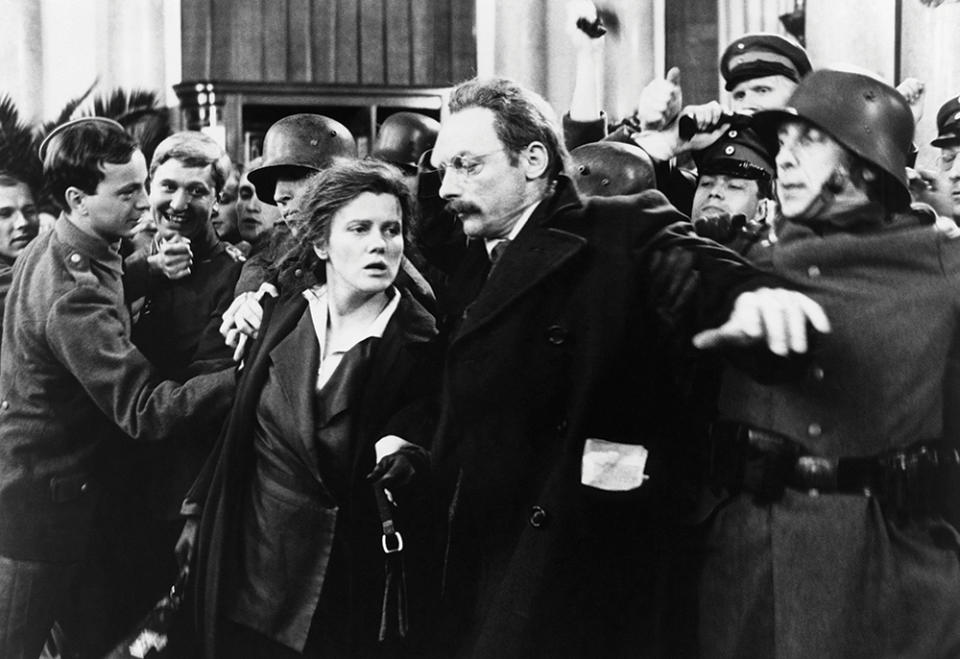
Rosa Luxemburg
A barn-storming portrait of the Polish German socialist revolutionary who co-founded the anti-war Spartacus League, which eventually became the German Communist Party, and who, in 1919, was assassinated by government-sponsored paramilitaries, many of whom would later join Hitler’s Nazi shocktroops.
[Rainer Werner] Fassbinder was supposed to make this film. I was asked, out of friendship for him, to make the film after his death. At first, I demanded time to find out my own view of this woman. Back then, she was always demonized as “red Rosa.” But I was interested not just in the revolutionary, but in the woman, how, despite all her struggle for a democratic socialism, she did not want to give up her role as wife, lover and friend.
My second movie with Barbara. She surprised me with her extraordinary intelligence. Many of the great ideas for the script came from her.
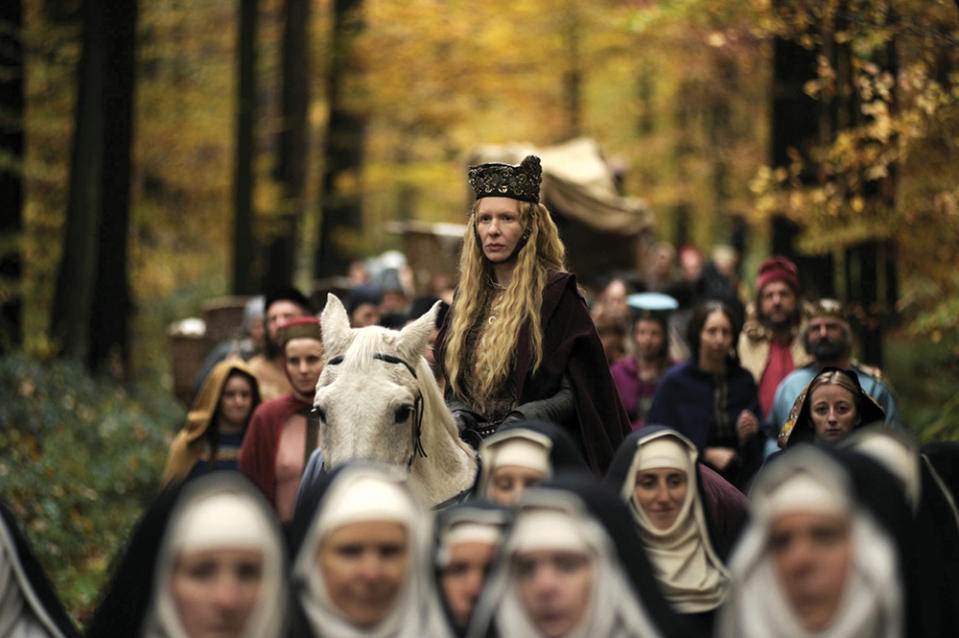
Vision
The extraordinary true story of medieval nun and polymath Hildegard von Bingen, a groundbreaking musical composer, natural philosopher and medical botanist.
Hildegard von Bingen was for me an early feminist of the Middle Ages. She believed she received her orders from God, [but] in reality they were her own desires for self-realization. Barbara Sukowa again! She was never only acting as this saintly woman, wonderful musician and visionary. She was “being.”
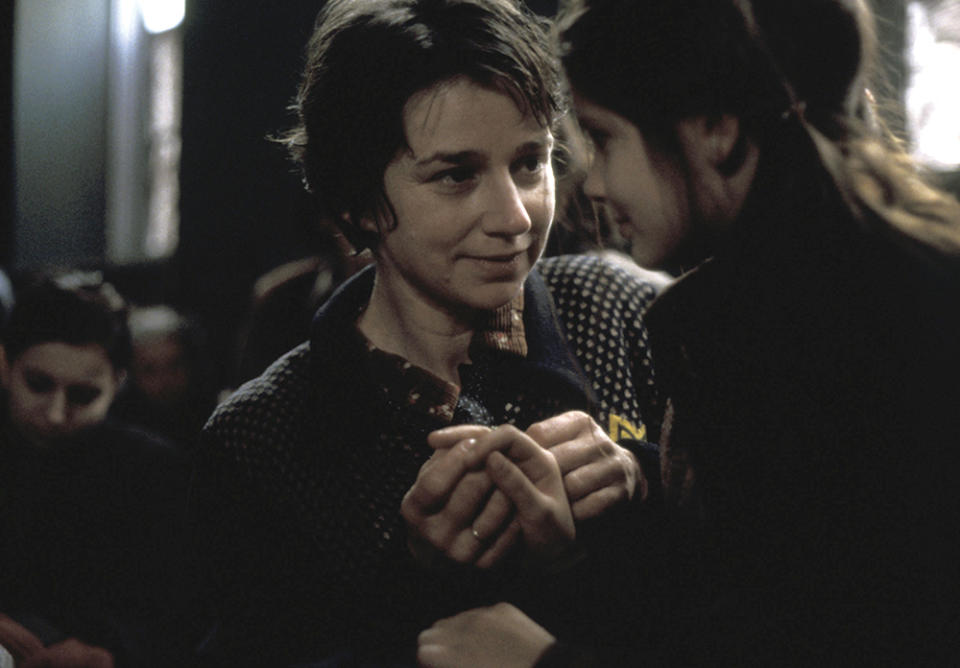
Rosenstrasse
Katja Riemann won best actress in Venice for her performance in this based-on-a-true-story drama about German women who stood up to the Nazis. And won.
This time it wasn’t about just one or two women, but a true story of “Aryan” women who took to the streets against the imprisonment of their Jewish husbands, precisely on Rosenstrasse in Berlin. They demonstrated for so long, and would not be moved, until the Nazis had to release their men. What fascinated me was this political action came from love — the love of each woman for her husband.
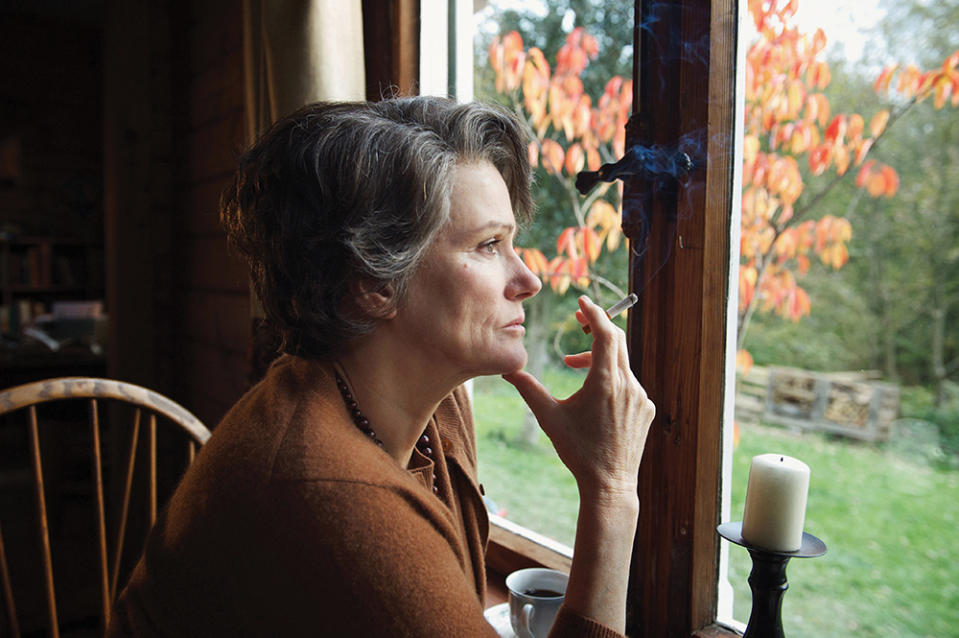
Hannah Arendt
Von Trotta regular Barbara Sukowa gives a lifetime best performance as the German Jewish philosopher who coined the term “the banality of evil.”
Her book about the [Adolf] Eichmann trial in Jerusalem was for me one of the most important and illuminating testimonies about “the dark times” in Germany. [I was fascinated by] her courage, her humor, and that she did not give up her love for [philosopher and later Nazi Party member [Martin] Heidegger. The most surprising for me was how Barbara Sukowa could show how H.A. was thinking onscreen. The act of thinking in a film about thinking or, [in the case of Eichmann,] not thinking.
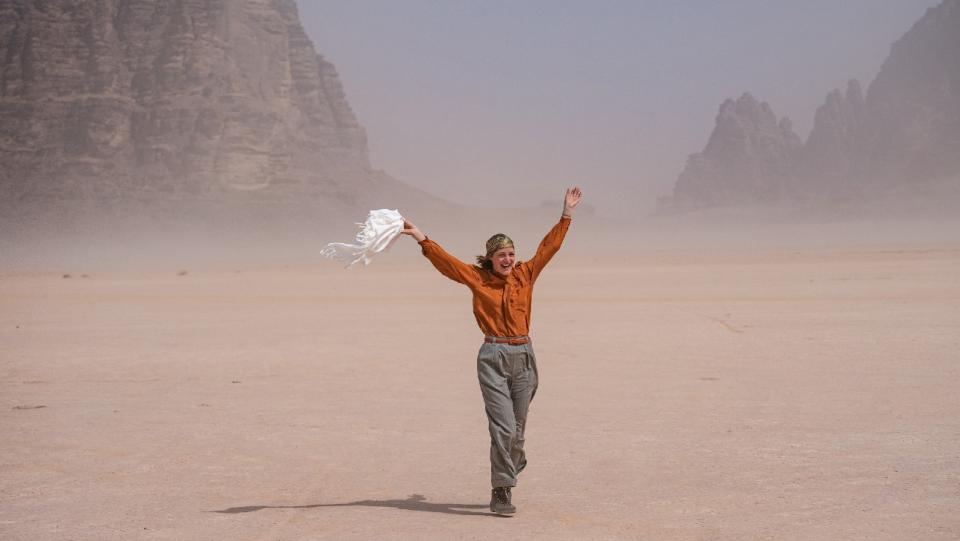
Ingeborg Bachmann — Journey Into the Desert
Vicky Krieps plays the Austrian poet and radical feminist who pushed for true emancipation — private, political and spiritual — from patriarchal society, and whose works are considered among the best in German literature.
This is my first portrait of a woman I met personally and whose poems I read and admired as a young woman. A woman who was ahead of her time, and claimed her independence when women still had to be “subservient” to their husbands, who lost none of her sensitivity in the process.
Vicky Krieps has embraced I.B.’s extraordinary sensitivity without losing herself in the process. She shows an amazingly wide range of emotions, but I was especially won over by her smile, which always lights up with surprise and enchants.

